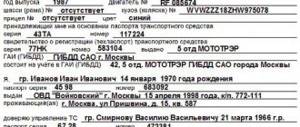The privatization of real estate continues in our country to this day. The majority of the population has already taken ownership of a house or apartment, which were previously considered state-owned by law. Now this process is happening more quietly. For example, in the form of privatization of newly acquired land plots.
Dear readers! The article talks about typical ways to resolve legal issues, but each case is individual. If you want to find out how to solve your particular problem , contact a consultant:
8 (800) 700 95 53
APPLICATIONS AND CALLS ARE ACCEPTED 24/7 and 7 days a week.
It's fast and FREE !
The main goal of privatization is to obtain rights to your property in its entirety so that you can sell it, donate it, or bequeath it.
Who can count on free privatization?
Those owners of land plots who received them before 2001 have the right to free privatization. In addition, if the land is provided with the right of perpetual use, and a residential building is built on it, which is in registered ownership, then this plot has the right to be privatized free of charge by the citizen to whom this plot was issued. If the land was acquired later than 2001, then you will have to pay for its privatization.
The right to free privatization is given to all citizens once. Where to start privatization? First you need to collect the documents necessary for this procedure.
Documents required for free privatization of land
What kind of procedure is this - land privatization? Where to start your actions? To register a land plot, the following documents are required:
- Passport of a citizen of the Russian Federation - this document, in addition to confirming your identity, is also evidence of your citizenship. Privatization of land to foreign citizens is prohibited.
- A statement that you wish to privatize the land. It indicates the purpose of assigning the land plot, its size, as well as information about the owner (full name, passport details, Taxpayer Identification Number).
- A primary document confirming your ownership of a specific plot.
- Cadastral passport. If this document is not available at the time of privatization, it must be ordered. This usually takes one month.
- Extract from the Unified State Register (regional chamber).
- Technical passport for capital buildings.
- Paid receipt for state duty.
- Copies of all these documents.
Privatization of land
The previous paragraphs mainly deal with the privatization of apartments and houses. Is land privatization necessary? Certainly! Absolutely all legal transactions with land plots are possible only if they are legally owned. That is why the Land Code of the Russian Federation established general rules regarding the process of land privatization depending on its purpose. In accordance with this, land plots owned by the state can be transferred into ownership or lease to both legal entities and individuals for a specific fee. Privatization of land plots can be free or paid.
Documents for land purchase (paid privatization)
If a citizen received land after 2001, or he has already used his right to free privatization, then he can only participate in a paid procedure. In other words, you can buy land from the state. Paid privatization of land requires considerable effort. Where to start this procedure? Of course, from collecting all the necessary papers. The following documents will be required:
- Certificate of normative value of the plot - issued by the district land committee.
- A certificate from the tax office indicating the area of the land plot and the amount of tax on it.
- Certificate from the BTI on the estimated value of the land. It is valid for one month.
- Technical passport for permanent structures located on the site.
The most important thing in the privatization process is collecting the necessary documents. Once you have them in your hands, you should not delay submitting the application, because... Some of the documents are valid only for a certain period, and if it has passed, you will have to waste your precious time again and order expired papers again.
Privatization of a private house
Where to start privatizing a house? This procedure, like the privatization of land, has one goal - to legitimize the ownership of real estate, as well as the land on which it is located, for a person who has been using it for many years.
To privatize a private house, you first need to identify the owner of this real estate. To do this, you can make a request to the registration chamber. If the owner is a private organization, privatization will be denied. Only state and municipal property can be privatized. Detailed advice on this matter can be obtained from your local administration.
The year the privatization of the housing stock began was 1992. But to date, not all citizens have managed to register ownership of their housing. Privatization was extended until March 2013, then until 2015, but it continues to this day. Officially, the State Duma extended it until March 1, 2020, but deputies are considering the issue of postponing this deadline until 2020.
Privatization and pensioners
Why do pensioners need privatization of real estate and is it necessary at all? It should be noted that for this category of people, all the advantages and disadvantages of privatization are closely related to their own comfort in the process of life. Being a legal owner of a home, a pensioner has the opportunity to bequeath it to loved ones. By the way, in this case, all expenses may fall on the shoulders of the heirs, and pensioners retain only the right of residence.
But there is also the other side of the coin: in addition to increased costs, in this case there is also a risk of deprivation of property. If the apartment is destroyed as a result of natural disasters or fire, the state will not compensate for this loss. Of course, you can insure your home, but again, this is nothing more than an extra expense.
Documents for privatization of a private house
Where to start privatizing a private house? As in all other cases, from collecting the necessary package of documents.
- Passport.
- Certificate (form No. 3), which confirms that the citizen has not yet participated in free privatization, because it can only be issued once. This certificate is issued at the passport office.
- Technical passport with a plan of the living space. Issued in BTI.
- Statement of desire to privatize a residential building. It is signed by everyone registered in the house. Thus, citizens registered in the house express their consent to privatization. The application is submitted to the Housing Department.
- Resolution on the transfer of real estate (house) into ownership from the Housing Department.
- A warrant for this residential premises or a social tenancy agreement.
- Application to the Federal Reserve.
In some regions, you may need to collect some additional documents. You can consult in detail on this issue with the administration at the location of the property. The entire package of collected documents is delivered there. After a positive decision is made, the citizen participating in privatization is given an act of acceptance and transfer of ownership of a residential property (house) and a corresponding agreement.
Procedure
The standard mechanism of action in 2020 is as follows:
- You need to collect all the necessary documentation.
- Next, a statement is drawn up.
- The generated package of documents is submitted to the authorized body.
Based on the received document, the authorized body will make a decision regarding the transfer of real estate to private ownership.
Required documents
If the law allows the privatization of your home, you will need to send a corresponding application to the local municipal government. What documents are needed for this? Along with the application, you will need to provide a package of documents established by the provisions of regulatory legal acts:
- Original and photocopy of the cadastral passport for the plot.
- The title document for the home and the land on which it is built.
- Written consent of other people living in the house on the basis of a warrant or social tenancy agreement. If one of the residents does not want to participate in the privatization of the house, he must write an official refusal.
- Extract from the house register.
- Personal account data confirming the absence of utility debts.
- A photocopy of the applicant’s passport with permanent registration in the privatized house.
In addition to the listed documents, in some cases additional documentation is required. For example, when privatizing a house with a child registered there, you will need to attach his birth certificate or passport (for children over fourteen years old) to the application. If the house is located on non-privatized land, you will need to collect privatization documents for the plot, because privatization of the house separately from the plot is not provided today.
Statements
In the application for ownership of a residential building and land plot, the following information must be indicated:
- details of each applicant;
- complete and accurate information about the privatized property (cadastral number, footage, address, etc.);
- when and on what basis the right to use real estate arose (social rental agreement, land lease agreement, etc.);
- information about those who refused privatization;
- if available, decisions of judicial authorities;
- the size of the shares of each participant in the procedure;
- date of compilation and signature of each applicant.
Consent of residents
It is possible to privatize a house only if everyone who lives in it agrees to it. Their parents or guardianship councils, empowered to act on behalf of the minor, act as defenders of the interests of children. Citizens who are already participating in privatization are not required to formalize a refusal. In this case, they will only be asked for a document stating that they are taking part in the privatization of third-party housing.
What documents will participants need? Of course, first of all, these are passports or other identification documents, then - a certificate drawn up in form number 3, confirming the fact that this person has not previously participated in privatization.
Next is a set of documents from the BTI, including a registration certificate. It was already mentioned above about the need to fill out an application to the housing department, in which the signatures of each of the residents must be affixed.
Cost and terms
The cost of the privatization procedure depends on the number of documents required and the prices of local institutions. For example, the price of a house registration certificate and land plan is individual in each region of the Russian Federation. Individuals are charged a state registration fee equal to 2 thousand rubles in 2020. A bank receipt for payment of the fee is attached to the documentation package, along with the application. If a tenant decides to use the services of a notary, it will cost him an additional 1-1.5 thousand rubles.
The time frame for privatizing a private house is a maximum of three to four weeks. Of these, two weeks are spent reviewing the submitted papers, establishing the completeness of the documentation package, and determining the authenticity of the submitted papers. Once the authenticity and completeness of all documents have been established, officials have 10 days to register the right of private ownership of the house and issue the appropriate certificate to the new owner.
In some cases, when additional examination of submitted papers is required, the review period is extended by one to two weeks. This need is formalized by personal order of the head of the territorial office of Rosreestr. If officials unlawfully delay the procedure for re-registration of property rights, a citizen has the right to file a complaint with higher authorities.
An application with a complaint against the actions of Rosreestr employees is submitted to their immediate superiors. When an appeal to senior officials of Rosreestr does not lead to the desired result, a person has the right to write a complaint to the prosecutor’s office or file a lawsuit with the judicial authorities. In a lawsuit, the victim has the right to demand punishment for negligent officials, as well as payment of compensation for moral and material, if any, damage.
Conclusion of an agreement
At the final stage of privatization, the citizen signs an agreement with the authorized body, on the basis of which the rights to housing are transferred to the participants in the process.
Such an agreement must be subject to notarization within the first 12 months from the date of its formation.
Possible problems
Practice shows that during privatization it is often the residential premises that are transferred into ownership, and not the house itself. A citizen carrying out privatization needs to independently control this issue and contact the local government body. An application is submitted there to remove a municipal residential building from the balance sheet in connection with its transfer to a new owner. The ownership of a newly privatized house is formalized in accordance with the general procedure by the federal state registration authority.
Privatization of the room. Where to begin?
Privatizing a room in a communal apartment is practically no different from privatizing an apartment in an apartment building. The following documents will be needed:
- Passport of a citizen wishing to privatize a room.
- Certificate of residence.
- Technical certificate.
- A certificate stating that there are no debts on utility bills is issued by the Department of Economic Development, Housing Office or REU.
- Certificate of registration form No. 9 - issued upon request from the housing department.
- Financial and personal account - issued upon request there.
- Passports of everyone registered in this room.
Where to start privatizing a room in a communal apartment? Of course, from collecting documents. The documents have been collected. What else needs to be taken into account in this case? If a room is privatized by a family with minor children, then they will need a document from the guardianship authorities that allows them to register the room as their property. Minor children cannot refuse privatization and automatically become participants. But they retain the right to free privatization. Let us remind you that this right is given to all citizens once.
If for some reason a month before the privatization procedure a minor child was discharged from the room, then privatization will most likely be denied. All adult citizens registered in the room have the right to refuse privatization, but this refusal must be notarized.
Advantages and disadvantages
Like any major transformation, privatization has its pros and cons. Among the disadvantages there are obvious ones, such as increased utility bills. Payments for home repairs can also be considered disadvantages.
Property tax is not burdensome, but in general it shows the difference between your own apartment and a state-owned one.
There is still no possibility of free increase in space per family upon resettlement. Previously, this practice was often the case. Now there is an opportunity to get an equivalent area in return.
The main advantage of privatization is that the owner has the right to dispose of real estate at his own discretion. As a result: a simplified registration procedure. In addition, it is almost impossible to evict the owner from his home.
Garage privatization. Where to begin?
Registration of ownership (privatization) of a garage implies not only the registration of this right, but also the privatization of the plot of land on which the building is located. A garage located in a garage cooperative (GC) is more difficult to privatize than a detached one, because in this case it is only a part (box) of the whole property (building). Privatization of the garage will allow you to dispose of the garage box at your own discretion (sell, donate, inherit, etc.). Where to begin?
First, you should go to the management of the Civil Code and obtain a certificate of state registration of this cooperative. After this, order a technical description of the garage from the BTI. It takes about a month to complete. When it is ready, submit it along with a package of documents to the Registration Chamber.
Documents for garage privatization
- A statement that you wish to register ownership of the garage.
- Passport.
- Declaration of ownership of real estate (the primary document confirming that the garage belongs to you).
- Cadastral plan of the site on which the garage is built.
- A document confirming ownership of the land on which the garage is located.
Any privatization requires considerable effort and time. If you don’t want to go through the authorities yourself, then you can hire realtors who will perform all these actions for a fee. If the garage was built in Soviet times, and there are no documents for it, then the issue of privatization can be resolved through the court.
Legislative regulation
The privatization of a country house on privatized land in Irkutsk is carried out in the same way as the registration of this building in another region of the country. This is due to the fact that the provisions of federal regulations are applied to the procedure. Basic information about the rules for the privatization of buildings is prescribed in the following acts:
- various articles of the Land Code;
- provisions of the Civil Code;
- Federal Law No. 93, containing information about the nuances of using the dacha amnesty;
- Federal Law No. 218 includes data on the rules for registering various real estate properties, which include summer cottages;
- Federal Law No. 191 indicates that the possibility of using a simplified registration method is provided until 2020;
- Federal Law No. 210 contains data on how you can transfer documentation for registration of a building to different authorities.
Local authorities of each region may additionally issue other regulations, on the basis of which adjustments are made to the rules for registering any small object located on a privatized territory. They cannot contradict federal laws. If such contradictions are identified, then privatization is possible through the courts.











